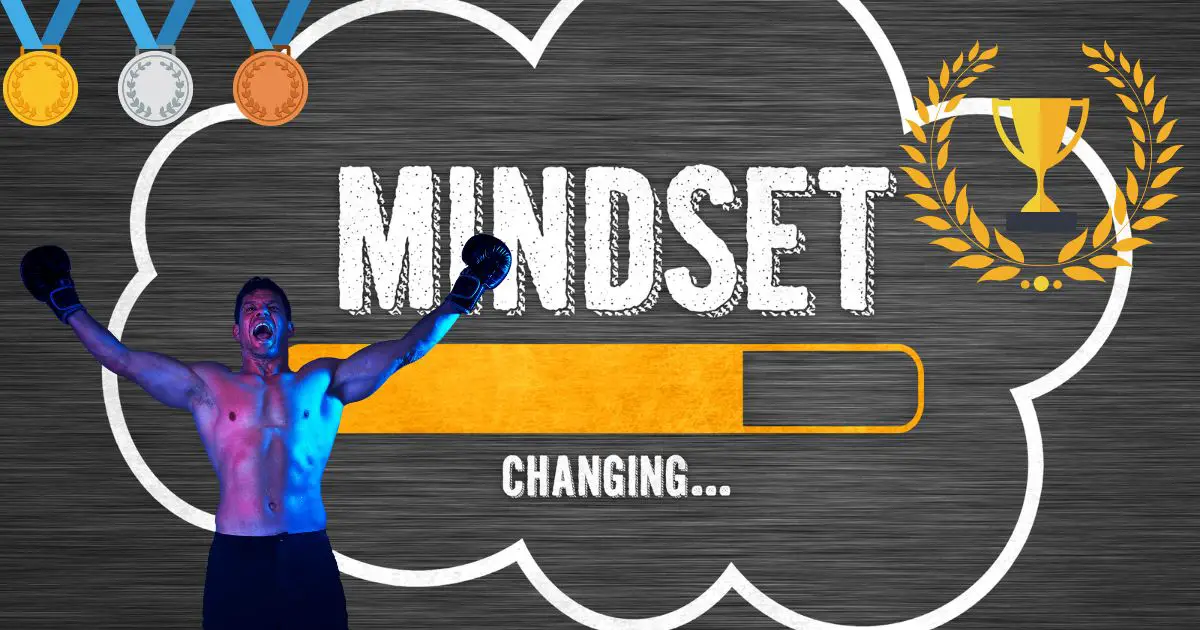Now, you might wonder if your friend’s weird behavior is something to worry about. Such actions could offer a glimpse into their character and possibly affect how your relationship with them progresses. Now, let’s explore the reasons why this is a worry and the possible solutions you could apply.
A friend’s shady behavior towards others is indeed a worry. This behavior might tell you more about their character and can impact your relationship with them. They might eventually turn on you if they feel you are no longer acting like a friend to them; it’s just a matter of time.
The bond of friendship is a special and intricate part of human life. Ideally, it should bring mutual support, comprehension, and admiration among friends. But sometimes we may observe our friend doing something dishonest or unkind to someone else.

Understanding Shady Behavior
When friends act with shadiness, it could mean they are dishonest, manipulative, inconsistent, or lack empathy. If these behaviors are directed toward others then this situation becomes alarming.
Reflects Their True Character
Actions speak louder than words. If your friend often does things that make you question their trustworthiness, it might be a sign of a more serious character fault. Regularly having to deal with deceitfulness, manipulation, or lack of respect toward others could potentially imply they could treat you in the same way at some point.
Impact on Trust
Trust is a crucial part of every relationship. When you see your friend doing something wrong, it can make you doubt the trust between both of you. You may begin to question their actions and motives, which can put pressure on your connection.
Influence on Your Values
The influence works both ways among friends. If you are always seeing bad actions, it is possible that they become normal for you or even join in with these actions. This could affect your ideas about what is good and wrong.

Signs to Watch For
Understanding shady behavior is not always easy, especially if you have feelings of friendship. But some signs can assist in understanding when a friend’s actions are problematic:
Inconsistency in Stories
If your friend regularly changes their stories or fibs about small matters, it could imply a more profound honesty problem.
Gossiping or Badmouthing:
A person who is always bad-mouthing others when they are not present could be showing signs of disloyalty and disrespect. If they do this about other people, it is possible that they would also do it to you.
Manipulative Behavior
Friends who manipulate situations or people for their gain can be dangerous. This shows a lack of consideration for the feelings and boundaries of others.
Lack of Accountability
This is a possible warning sign when someone never accepts fault for anything they do wrong. They always find a way to blame others, showing no interest in self-assessment or improvement.

Understanding the Roots of Shady Behavior
Understanding the root causes of shady behavior in friends is important to truly grasp why it’s a worry. People are intricate and their actions usually sprout from a blend of individual encounters, psychological elements, and societal impacts.
Psychological Factors
Psychological aspects have a big impact on how people behave. Things like low self-belief, past trauma that has not been resolved and personality disorders can all show up in negative behaviors (for instance, someone who feels bad about themselves might participate in gossip or manipulation to feel better than others or get approval from others). Equally, persons who possess narcissistic qualities could show a lack of empathy and participate in dishonest actions to keep up their self-image.
Social Influences
The environment of society where a person is brought up and interacts also has a major effect on their behavior. Individuals who have dealt with toxic relationships, be it from within their family, school, or past friendships may acquire unhealthy methods of coping. This could occur because they learned to manage relationships by using manipulation tactics, dishonesty, or other shady activities that previously proved successful for them.
Personal Insecurities
Worries can make people do things that are not right or thoughtful. For example, a friend may act shady because they fear being excluded, losing power over something, or not getting accepted. These insecurities might drive them to do actions that hurt others but safeguard their interests. Knowing these driving forces can assist in dealing with the core reasons, not just the surface effects.

Assessing Your Friend’s Behavior
When analyzing a friend’s suspicious actions, one should think about the behavior critically and contextually. This does not indicate making reasons for them, but comprehending everything that is happening.
Patterns vs. Isolated Incidents
Mistakes are common, and people can act in unusual ways because of stress or temporary situations. A single event of shady behavior may not be the defining factor, but continuous patterns display a stronger message. If the conduct repeats itself over time and appears to be an inherent part of how they deal with others, it is more worrisome.
Impact on Others
Think about the effects your friend’s behavior has on other people. Are they causing serious damage, pain, or puzzlement? If their conduct always results in harm to others, it shows a deficiency of compassion and honor. These are very important features for any good relationship. Seeing the effects of what they do to others can give a good understanding of their character.
Your Boundaries
Think about the impact your friend’s behavior has on you. Does it make you feel uneasy, worried, or tense? Good friendships are those that provide a sense of backing and admiration. When your friend’s actions start to invade your limits, it becomes very important.

The Impact on Your Relationship
If a friend displays ill actions toward others, it may bring about multiple direct and indirect consequences in your relationship:
Erosion of Trust
As mentioned before, trust is very important in every relationship. When it gets broken or weakened, building becomes difficult. Always doubting your friend’s actions can create a wall between you two.
Emotional Drain
It’s true, sometimes having a friend who often does bad things can make you tired. It may cause feelings of stress, worry, and not feeling good.
Influence on Your Behavior
Friends have a big influence on each other’s actions and viewpoints. If you keep seeing or being involved in shady activities, it could begin to change your behavior and sense of what is right.

Addressing the Issue and Navigating Difficult Conversations
Talking about a friend’s shady behavior is not simple. It needs care, clearness, and an authentic aim to maintain the friendship if it can be possible.
Preparation
Get ready in your mind and feelings before starting the conversation. Think about what you want to get from this talk and the main things that need addressing. Try to have a calm and open attitude, seeking positive results in the discussion.
Choosing the Right Moment
Time and place matter in discussing delicate matters. Select a moment when both of you are relaxed and available for conversation without disturbances. A confidential and cozy location may assist in fostering an open, truthful conversation.
Communicating Effectively
It’s very important to communicate effectively. Use “I” statements for expressing feelings instead of sounding like you are blaming someone. For instance, “When I see you gossiping about others, it makes me feel worried because it raises doubts about how much respect you have for our friendship.” Be specific about the behaviors that concern you and provide examples if possible.
Listening to Their Perspective
Allow your friend to tell their story. By hearing their side, you might understand why they acted as they did and how they felt about it. It also expresses that you care about their thoughts and are focused on comprehending and settling the matter together.
Proposing Solutions
Cooperate in finding answers. You might set up definite limits, look for expert assistance, or make an agreement to alter some actions. The aim is to create a friendlier and more respectful atmosphere within your friendship.

When to Walk Away?
Despite your attempts, there could come times when the wisest choice is to create some distance from the friendship. Here are several indications that this might be a suitable moment to step back:
Persistent Negative Behavior
If you have tried to talk about the questionable actions of your friend but they keep doing these things, perhaps it’s now a good moment for you to think again about this friendship.
Impact on Mental Health
If the friendship is giving you serious stress, worry, or emotional hurt, it’s very important to look after yourself. A good relationship should make you feel better and help you, not make things worse.
Lack of Mutual Respect
Respect is a very important element in every relationship. If your friend keeps showing a lack of respect, either towards you or others, it could mean that the friendship is not good for you anymore.

The Long-term Perspective
As friendships grow, it is natural for people to change and face new situations. Talking about suspicious actions is one way that this growth can happen. How a friend reacts to this conversation might strengthen the friendship or show more serious problems that need attention.
Growth and Change
People can change and grow, especially when they have friends who understand them. Speaking about shady behavior can be a point where things turn around for your friend and they begin to develop themselves. Your friend may understand how their actions are affecting others and want to take steps towards improvement. This process can strengthen your bond and foster a more genuine and respectful relationship.
Maintaining Vigilance
Keep watching, even when the issue is settled. Notice if there is a genuine change or if the shady actions continue. Improvement and effort that stay steady are indicators of a healthy, changing friendship.
Self-Reflection and Self-Care
Although it’s necessary to be there for your friends, you should also think about yourself. Consider the effect of this friendship on your well-being. If the actions of your friend keep causing discomfort, make sure that you care first for your mental and emotional health. Sometimes, distancing yourself or ending the friendship is the best decision for your well-being.
Seeking Professional Help
For certain situations, it might be helpful for everyone involved to seek professional assistance. Therapy or counseling could offer a neutral place where problems can be examined and better communication as well as relationship skills developed. If your friend is willing, you could suggest getting professional help.
Redefining Your Circle
Friendships have a big part in the way we live. They can impact our actions, beliefs, and general joyfulness. It’s very important to be around positive friends, show respect, and give support for your development and good health.
Evaluating Your Social Circle
Do a thorough check of your social circle. Ask yourself, are my friends helpful and polite? Do they boost me up and stimulate good progress? Constructing a social circle filled with individuals who appreciate your beliefs and adhere to your limits can lead to a happier, more positive environment.
Building Healthy Relationships
Create a foundation of good relationships that are built on respect for each other, trust, and support. Take part in activities that encourage positive interaction and strengthen your bond. Maintain friendships that promote personal happiness and offer assistance during tough situations.
Learning from the Experience
Every relationship, even when it ends or becomes distant, has something to teach us. Thinking back on the times you had with dishonest friends can give you an understanding of what is important in a friendship and what you do not want for yourself later on.
Conclusion
The behavior of my friends towards others that’s not nice makes me worry. It can show what they are really like, affect how much I trust them, and change my values and mental health. Understanding the signs of dark actions and dealing with them is important for keeping a good friendship. When you have attempted to address the situation but their behavior is still unchanged, it may be beneficial for your welfare to reevaluate this friendship.
Keep in mind that friendships should make your life better, not more complex. Choose to be with individuals who value, encourage, and inspire you. When you give importance to healthy relationships, this helps in forming a good social surrounding that adds to your happiness and wellness.





